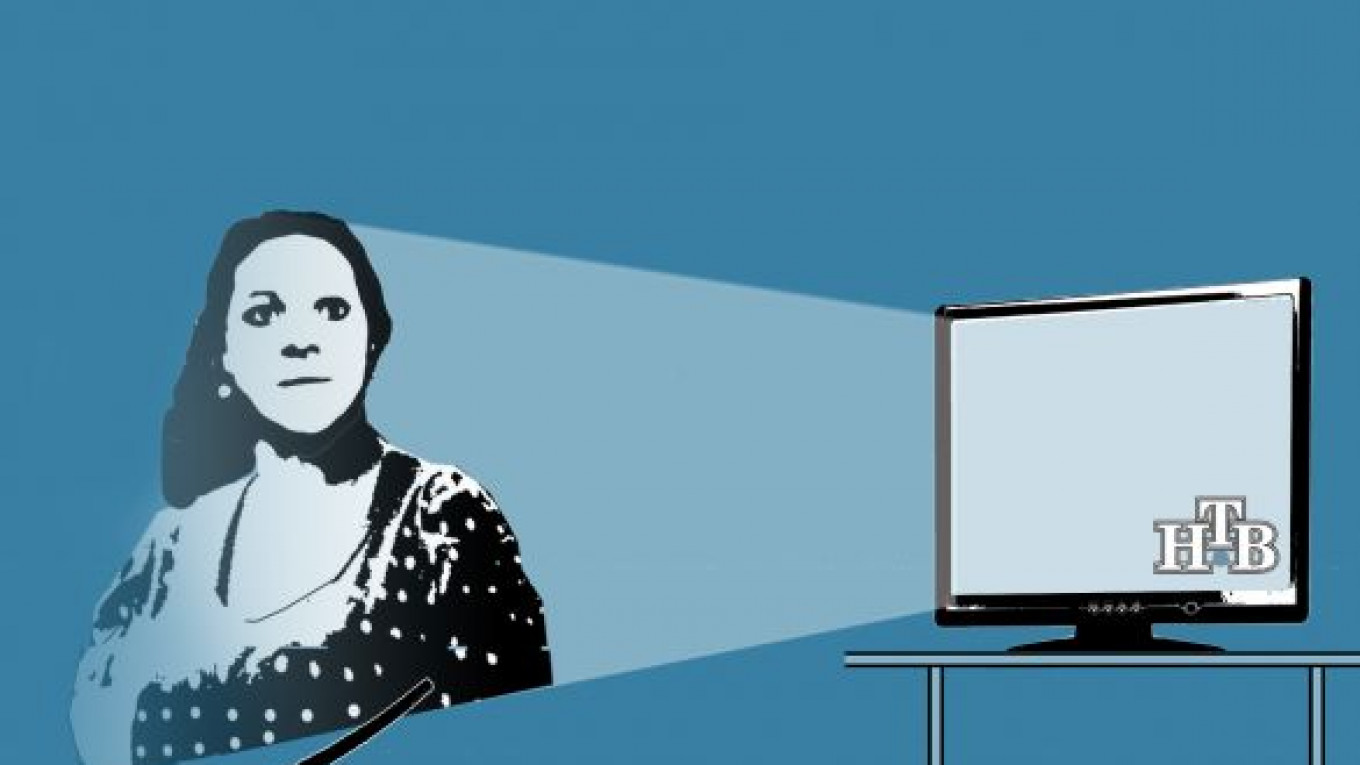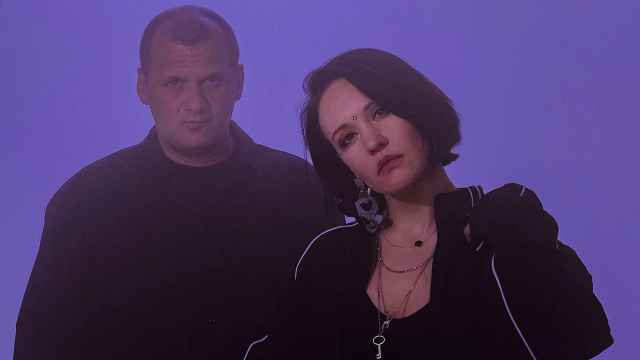This week, a new star rose on NTV television, spreading fear throughout the land.
It was Sveta Kuritsyna, 19, the member of a pro-Kremlin youth group who famously babbled in a comment to a journalist that the Putin era was great because "we have started to dress more better."
He then posted her gushing comment full of other unlikely assertions on YouTube, and it took off like a rocket. More than 2 million people have watched it by now, and her slogan was picked up ironically by protesters.
I read that the reporter who posted the videos was mortified with guilt about ruining her life. But judging from the program, Kuritsyna was even a little proud of her Internet fame and people recognizing her, and he really had no grounds for concern.
Kuritsyna, from the textile town of Ivanovo, was speaking as a member of Nashi's Stal, or Steel, division. Its members are known as "smelters."
She came across as different from most Nashi members, who are monosyllabic and blank-eyed, at least with journalists at events. Rather plump and with long, dark hair, she has dark, naive eyes.
Izvestia newspaper wrote in December that she was taking bookkeeping exams and lived in a hostel on the edge of Ivanovo. It photographed her sitting on a metal bunk bed next to a peeling wall but typing on a laptop that it said was bought on credit by her parents.
Her mother is a seamstress at a linen plant.
It did not go into her love life, but she said her favorite men are Vasily Yakemenko, the founder of Nashi, and Vladimir Putin.
Before joining Stal, she had a dalliance with the Liberal Democratic Party of Russia.
The show, which started Saturday, is called "Luch Sveta," (Ray of Light) after her nickname, Sveta.
Enthusiastically, she "interviewed" celebrities in a show with the conceit that she herself had come to make her way in Moscow and was learning about life in the big city and trying to get a regular series on NTV.
It makes sense since most Russian dramas are about provincial girls coming to conquer Moscow.
She collapsed giggling after bumping into pop producer Iosif Prigozhin.
"I was lost. I couldn't think what to ask," she said later.
Then that nice weatherman from NTV warned her it could be a one-off show.
"What if they kick you out after the first show?" he asked skeptically.
"That was fun," she said undauntedly as the brief master class ended.
Then she went to a lame awards ceremony where some Russian celebrities including her former favorite lawmaker, Vladimir Zhirinovsky, were given prizes of bed linen.
At the party, she homed in on television presenter Anfisa Chekhova, known for her impressive display of cleavage.
"Maybe I too can get into show business using my breasts," she mused, no slouch in this department herself. Well, I suppose there may be a vacancy or two now that Ksenia Sobchak has been blacklisted.
"You just have great breasts. I have always admired them. Can you tell me the size?" was her opening line to Chekhova.
Chekhova's makeup froze over a little as she said, "That's not a tactful question."
To create some tears, NTV set Sveta up in a situation where police hassled her over her lack of registration and confiscated her passport — realistic enough, probably.
"Sveta passed the baptism of fire," the channel intoned.
She also met pop producer Bari Alibasov, an interesting character who collects toilets and periodically rejuvenates the lineup of a boy band called Na-Na, which started in the 1980s.
"You have really striking, expressive breasts," he said, examining her assets in a low-cut dress. "You need to exploit them to the max."
The show was the highest-rated Saturday night show in Moscow, Izvestia reported.
A Message from The Moscow Times:
Dear readers,
We are facing unprecedented challenges. Russia's Prosecutor General's Office has designated The Moscow Times as an "undesirable" organization, criminalizing our work and putting our staff at risk of prosecution. This follows our earlier unjust labeling as a "foreign agent."
These actions are direct attempts to silence independent journalism in Russia. The authorities claim our work "discredits the decisions of the Russian leadership." We see things differently: we strive to provide accurate, unbiased reporting on Russia.
We, the journalists of The Moscow Times, refuse to be silenced. But to continue our work, we need your help.
Your support, no matter how small, makes a world of difference. If you can, please support us monthly starting from just $2. It's quick to set up, and every contribution makes a significant impact.
By supporting The Moscow Times, you're defending open, independent journalism in the face of repression. Thank you for standing with us.
Remind me later.






